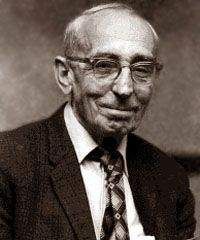Пользователь - o 3b3e7475144cf77c
serve.
There lay the drama of present day events in Germany, and Lanny strove to explain it to the
French workers and to such of their leaders as he met. Hitler sat in his study in Berlin, or in
Munich, or in the retreat which he had bought for himself in the mountains, and the Nazi
chieftains came to him and argued and pulled him this way and that; he thought it over, and
chose whatever course seemed to him to open the way to power. He was as slippery as an eel,
and as quick to move, and nobody could say what he was going to do until he had done it. The
one thing you could say for sure was that National Socialism was power without conscience;
you might call it the culmination of capitalism, or a degenerate form of Bolshevism—names
didn't matter, so long as you understood that it was counter-revolution.
The important question was, whether this same development was to be expected in every
country. Was the depression going to wipe out the middle classes and drive them into the arms of
demagogues? Were the workers being driven to revolt, and would their attempts be met by the
overthrow of parliaments? Were the Communists right in their seemingly crazy idea that
Fascism was a necessary stage in the breakdown of capitalism?
Apparently the question was up for answer in the land which Lanny and Irma called theirs.
The ex-service men who had gone overseas to fight for their country had come back to find the
jobs and the money in the hands of others. Now they were unemployed, many of them
starving, and they gathered in Washington demanding relief; some brought their destitute
families and swarmed upon the steps of the Capitol or camped in vacant lots beside the
Potomac. The Great Engineer fell into a panic and could think of nothing to do but turn the
army loose on them, kill four, and burn the tents and pitiful belongings of all. The "bonus men"
were driven out, a helpless rabble, no one caring where they went, so long as they stopped
bothering politicians occupied with getting re-elected.
To Lanny this appeared the same thing as the Cabinet of the Barons, seizing control of
Prussia and ruling Germany with only a few votes in the Reichstag. It was Poincaire occupying
the Ruhr for the benefit of the Comite des Forges; it was Zaharoff sending an army into Turkey
to get oil concessions. It was the same type of men all over the world. They tried to grab one
another's coal and steel and oil and gold; yet, the moment they were threatened by their wage
slaves anywhere, they got together to fight against the common peril. Do it with the army, do it
with gangsters, do it with the workers' own leaders, buying them or seducing them with titles,
honors, and applause!
Lanny could see that clearly; and it is a pleasure to the mind to discover unity in the midst of
variety. But then the thought would come to him: "My father is one of these men, and so are
his father and his brothers. My sister's father-in-law is one, and so was my wife's father, and
all the men of her family." That spoiled the pleasure in Lanny's mind.
X
Two or three weeks passed, and ambition began to stir once more in the soul of Irma Barnes
Budd. There was that splendid palace in Paris, for which she was paying over eighty thousand
francs rent per month, and nearly as much for upkeep, whether she used it or not. Now it was
autumn, one of the delightful seasons in la Ville Lumiere. The beau monde came back from the
mountains and the sea, and there were the autumn Salons, and operas and concerts and all the
things that Lanny loved; there were balls and parties, an automobile show and other displays
of luxury. The young couple set out in their car, and Sophie and her husband in theirs, and
Beauty and her husband in hers. Mr. Dingle didn't mind wherever she took him, for, strange as
it might seem, God was in Paris, and there were people there who knew Him, even in the
midst of the rout of pleasure-seeking.
Margy, Dowager Lady Eversham-Watson, came from London, bringing Nina and Rick for a
short holiday. Rick was a celebrity now, and the hostesses were after him. Also General Graf
Stubendorf was invited, in return for his hospitality, and to Lanny's surprise he accepted.
Others of the fashionable Berliners came, and it was hands across the Rhein again—but Lanny
was no longer naive, and couldn't persuade himself that this was going to keep the peace
among the great European powers. The Conference on Arms Limitation was still arguing at
Geneva, and facing complete breakdown. The statesmen and fashionable folk, even the army
men, would wine and dine one another and be the best of friends; but they would go on
piling up weapons and intriguing, each against all the others—until one day an alerte would
be sounded, and you would see them all scurrying back to their own side of the river, or
mountains, or whatever the boundary line might be.
It didn't take Irma long to become the accomplished hostess. With Emily Chattersworth and
the other ladies coaching her, she played her part with dignity and success; everybody liked
her, and the most fastidious denizens of St. Germain, le gratin, could find no fault in her. She
wasn't presuming to attempt a salon—that would take time, and perhaps might grow as it were
by accident. Meanwhile she gave elegant entertainments with no sign of skimping, at a time
when all but a few were forced to that least pardonable of improprieties.
For three years the business prophets had been telling the world that the slump was only
temporary, that prosperity was just around the corner. But apparently it was a round house.
Apparently some devil had got into the economic structure and was undermining it. In Wall
Street, at the culmination of a furious political campaign, there was a new wave of bank
failures; dividends seemed to have stopped, and now interest on bonds was stopping. Irma's
income for the third quarter of the year had fallen to less than a hundred thousand dollars.
She said to her husband: "We'll have a splurge for the rest of this lease and then go back and
crawl into our stormcellar."
He answered: "All right," and let it go at that. He knew that he couldn't change Irma's idea
that she was helping to preserve the social order by distributing money among domestic
servants, wine merchants, florists, dressmakers, and all the train that came to the side-door of
this palace—as they had come in the days of Marie Antoinette a hundred and fifty years ago.
It hadn't succeeded in saving feudalism, and Lanny doubted if it was going to save capitalism; but
there was no use upsetting anybody ahead of time!
Lanny worried because his life was too easy; he had worried about that for years—but how
could he make it hard? Even the harsh and bitter Jesse Blackless, depute de la republique
francaise, couldn't forget the fact that he owed his election to Irma's contributions, and that
sooner or later he would have to be elected again. Even Jean Longuet, man of letters as well as
Socialist editor, didn't presume to question the judgment of a wealthy young American who
brought him some drawings by a German art student. He said he would be delighted to use
them, and Trudi Schultz was made happy by a modest honorarium from Le Populaire. She had
no idea that the money came out of a contribution which Lanny had made to the war-chest of
that party organ.
XI
Hitler's program of "opposition to the last ditch" had forced the dissolution of the
Reichstag, and a new election campaign was going on. It was hard on Adolf, for he couldn't
get the money which such an effort required, and when the election took place, early in
November, it was found that he had lost nearly two million votes in three months. Johannes
Robin was greatly relieved, and wrote that it was the turning of the tide; he felt justified in his
faith in the German people, who couldn't be persuaded to entrust their affairs to a mentally
disordered person. Johannes said that the Führer's conduct since the setback showed that he
couldn't control himself and ought to be in an institution of some sort.
Two days after the German elections came those in the United States. Robbie Budd had his
faith in the American people, and he clung to it up to 7:00 p.m. on the Tuesday after the first
Monday of November 1932, but then it was completely and irremediably shattered. The Great
Engineer, Robbie's friend and idol, went down in ignominious defeat, and "that man
Roosevelt" carried all the states but six. One that he failed to carry was Robbie's home state,
and a rock-ribbed Republican could thank God for that small atom of self-respect left to
him! Adi Hitler might be a mental case, but he had the wisdom of Jove compared with
Roosevelt as Robbie saw him; a candidate who had gone on a joy-ride about the country,
promising everything to everybody—completely incompatible things such as the balancing of the
budget and a program of government expansion which would run the public debt up to figures
of the sort used by astronomers.
Both Robbie and Johannes made it a practice to send Lanny carbon copies of their letters
containing comments on public affairs. For the first time since the World War the Jewish
trader was the optimist. He repeated his favorite culinary formula, that no soup is ever eaten
as hot as it is cooked. He offered to prove his faith in the land of the pilgrims' pride by letting
Robbie buy more Budd shares for him; but Robbie wrote in the strictest confidence—typing
the letter himself—that Budd's might soon be closing down entirely; only Hoover's wise and
merciful Reconstruction Finance Corporation had kept it from having to default on its bonds.
Under the American system, four months had to elapse between Roosevelt's election and his
taking of power. Robbie thought that would be a breathing-spell, but it proved to be one of
paralysis; nothing could be done, and each side blamed the other. Herbert was sure that
Franklin wanted to see the country go to wreck in order that he might have the glory of saving
it. Anyhow, there it was, wave after wave of bank failures, and people hiding their money in
mattresses, business men buying gold because of the expected inflation, and people in Europe
who had shipped their money to America now calling it back. Seventeen million workers were
said to be without jobs—a world record!
XII
Meanwhile the deadlock in Germany continued. The Socialists had lost another big chunk of
votes to the Communists, and they hated each other more than ever. Hitler had another
interview with Hindenburg, and demanded the chancellorship, but didn't get it.
The Nazi extremists were infuriated by Hitler's "legality complex," and clamored for him to
seize power. There was another violent quarrel between the Führer and his Reich Organization
Leader Number One, Gregor Strasser; the former threatened suicide again, and the latter
threatened to resign from the party and set up a new one of his own.
Strasser began intriguing with the gentlemen of the Herren Klub, who were ready to make a
deal with anybody who could deliver votes. General von Schleicher wanted to supplant von
Papen, who was supposed to be his friend and ally; he had the bright idea of a cabinet which
would combine the extreme Junkers with the extreme Nazis—they could browbeat Hitler,
because his party was bankrupt, his paymasters had drawn the purse-strings, and he himself
was in a state of distraction. Schleicher and Strasser combined would threaten another
dissolution of the Reichstag and another election, with the certainty that without money the
Nazi vote would be cut in half. Such was the X-ray picture of German politics which
Johannes Robin sent to his trusted friends; he didn't say in so many words that both the
conspirators had come to him for funds, but he said that he hadn't got the above information
at second hand.
This deal apparently went through. When the members of the Budd family drove to Bienvenu
to spend Christmas, the "office general" was Chancellor of the German Republic, Gregor
Strasser had broken with Hitler and was being talked of for a cabinet post, and Hitler had been
browbeaten into consenting to an adjournment of the Reichstag until January.
From Connecticut and from Long Island came Christmas letters in which you could see that
the writers had labored hard to think of something cheerful to say. Irma, reading them, said to
her husband: "Maybe we'd better close up the palace and save money, so that we can take care
of my mother and your father if we have to."
"Bless your heart!" replied the prince consort. "You've hired that white elephant until April,
so you might as well ride him that long."
"But suppose they get really stuck, Lanny!"
"Robbie isn't playing the market, and I don't suppose your mother is, so they can't be broke
entirely."
Irma thought for a while, then remarked: "You know, Lanny, it's really wonderful the way
you've turned out to be right about business affairs. All the important people have been wrong,
while you've hit the nail on the head."
Said the young Pink: "It's worth going through a depression to hear that from one's wife!"
14
The Stormy Winds Do Blow
I
BACK in Paris during the month of January Lanny would receive every morning a copy of the
Berlin Vorwärts, twenty-four hours late; he would find on the front page details of the
political situation, displayed under scare headlines and accompanied by editorial exhortations.
All from the Socialist point of view, of course; but Lanny could check it by taking a stroll up
the Butte de Montmartre and hearing the comments of his deputy-uncle, based on the reading
of L'Humanité, the paper which Jaures had founded but which now was in the hands of the
Communists. This paper also had its Berlin news, set off with scare headlines and editorial
exhortations. Because L'Humanité got its stories by wire, Lanny would sometimes swallow the
antidote ahead of the poison.




